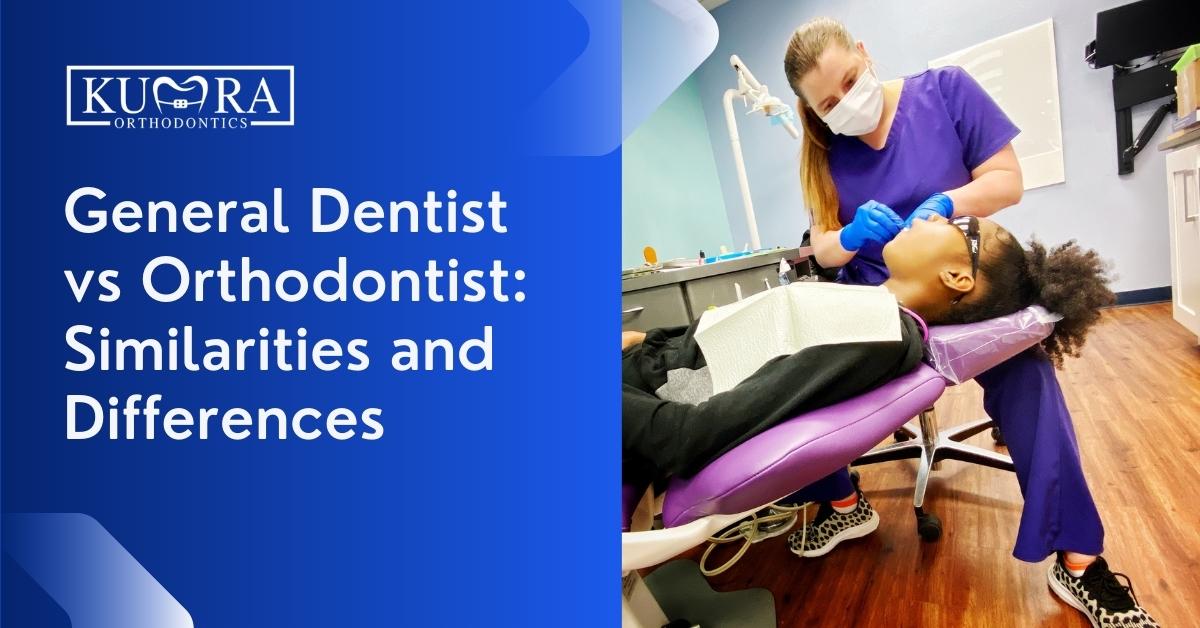Dentists and orthodontists both deal with teeth. Both provide professional care that promotes oral health, and both are graduates of dentistry school. Additionally, your dentist may provide orthodontic services, causing you to believe they are an orthodontist. However, simply placing aligners or braces on teeth does not qualify a dentist as an orthodontist.
Similarities
Promotion of oral health
Dentists and orthodontists share a common goal of helping you improve your oral health, but they approach the endeavor in very different ways. Dentists deal with a wide range of issues relating to oral health.
All aspects of oral health are the responsibility of general dentists, also known as family dentists. Dentists do root canal therapy and tooth extractions when necessary (extractions). Patients with severely decaying, misshapen, or cracked teeth are often given crowns, veneers, or bonding to improve their appearance and function. Dentists provide oral cancer screenings and advise patients on avoiding developing oral health problems.
An orthodontist is a dental professional to call when it comes to teeth straightening and correcting bad bite patterns.
Most patients who need specialized care will be referred to an orthodontist by their general dentist. As a rule of thumb, dental specialists recommend that parents take their children to an orthodontist at least once before their child reaches the age of 7.
Eligibility to conduct treatments such as braces and Invisalign
A few general dentists and firms may provide orthodontic services, such as braces and Invisalign. Still, only those with further training in an accredited residency program may claim to be orthodontic experts.
Your face and your smile could suffer irreparable damage if you let someone who isn’t an orthodontist handle the task of moving your teeth. Choosing an orthodontist ensures that you are working with a professional who has the education and experience to give you the smile you’ve always wanted.
Needing an orthodontic appointment?
Visit Kumra Orthodontics Washington DC or Kumra Orthodontics Stafford, VA, and request an appointment with us!
Differences
Education
AAO stated dentists and dental specialists attend dental school. Following dental school, dental specialists study full-time for two or more years in an authorized program in their specialty area. Specialized orthodontic training can only be obtained by orthodontists who have completed an orthodontic program recognized by the Commission on Dental Accreditation. Following graduation, a dental specialist may use a title to denote their specific training (e.g., orthodontist).
Scope of Practice
According to the American Association of Orthodontists (AAO), dentists are ultimately accountable for their patients’ overall dental health. A dentist can diagnose and treat cavities, moderate gum disease, and oral hygiene issues during routine examinations and remove teeth beyond repair.
Bonding, veneering, or crowning broken, chipped, misshapen, or severely decayed teeth can improve their function and look. Your dentist also checks your mouth for dental disease and gives you advice on keeping your teeth and gums healthy. Whenever a dentist feels that they can’t help you, they’ll send you to a specialist.
On the other hand, orthodontists are experts in jaw alignment and teeth relocation. Orthodontists treat patients with crowded teeth, gaps in the middle of teeth, projecting teeth, and misaligned jaws, among other issues.
Regular braces, lingual braces, and clear aligners are just a few tools that orthodontists use to correct misaligned teeth and jaws. AAO also stated that orthodontists use X-rays and photographs of the teeth to build individual treatment programs for each patient.
While not everyone requires orthodontic treatment, it may be necessary if you have any of the following problems:
- Crowding
- Open Bite
- Crossbite
- Underbite
- Impacted Teeth
Get in touch with Kumra Orthodontics today to learn more about dentists vs. orthodontists.
When comparing orthodontists and dentists, it’s important to remember that some of the differences between these fields are more significant than any similarities.
For starters, an orthodontist must complete additional schooling as a dental specialty, similar to a medical practitioner obtaining additional education to become a surgeon. Another difference is that practitioners who offer orthodontic services specialize in helping patients improve their bite and teeth alignment. In contrast, those offering general dental care may not have this focus or expertise. Contact us today if you want more information on how we can help with your smile transformation at Kumra Orthodontics.


